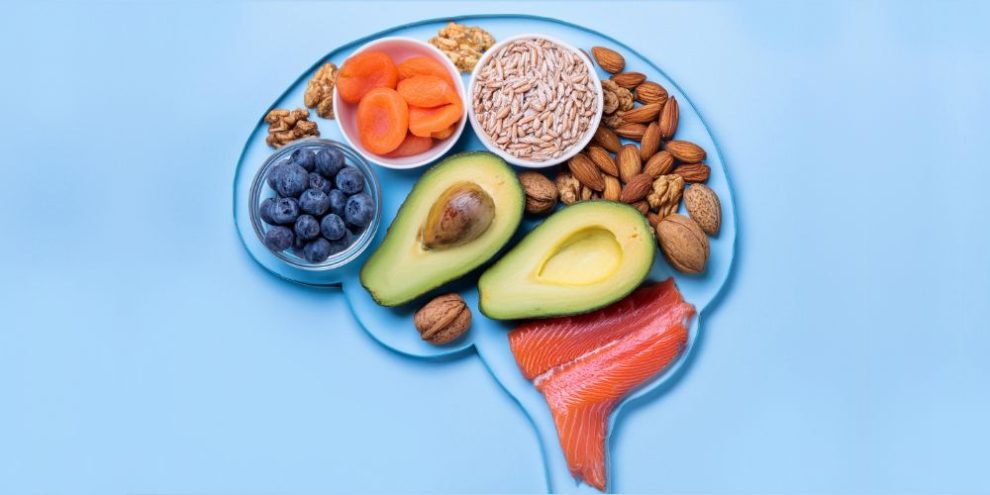
Your brain is the control center of everything you do — thinking, feeling, moving, and even sleeping. Just like the rest of your body, your brain needs proper care to stay healthy and function at its best.
Whether you're looking to boost memory, improve focus, or support long-term brain health, here are some simple tips to keep your mind sharp and resilient.
Barrie's News Delivered To Your Inbox
By submitting this form, you are consenting to receive marketing emails from: Central Ontario Broadcasting, 431 Huronia Rd, Barrie, Ontario, CA, https://www.cobroadcasting.com. You can revoke your consent to receive emails at any time by using the SafeUnsubscribe® link, found at the bottom of every email. Emails are serviced by Constant Contact
1. Fuel your brain with the right foods
What you eat has a direct impact on brain function — from clarity and concentration to long-term cognitive health.
The top brain-boosting foods:
- Fatty Fish: Salmon, mackerel, and sardines are rich in omega-3s—essential fats that support neuron structure and communication.
- Berries: Blueberries and strawberries are packed with antioxidants that reduce oxidative stress and inflammation in the brain.
- Leafy Greens: Spinach, kale, and broccoli are full of folate, vitamin K, and lutein—all linked to slower cognitive decline.
- Nuts and Seeds: A daily handful of walnuts, almonds, or pumpkin seeds supports memory, thanks to healthy fats and vitamin E.
- Whole Grains: Brown rice, oats, and quinoa provide steady energy and promote good circulation to the brain.
Pro Tip: Try the MIND diet — a hybrid of the Mediterranean and DASH diets that's designed specifically to support brain health.
2. Move your body, boost your brain
Exercise is one of the most powerful tools for a healthy brain.
How physical activity helps:
- Improves blood flow to the brain, delivering oxygen and nutrients
- Promotes neuroplasticity: your brain’s ability to form new neural connections
- Triggers the release of BDNF (Brain-Derived Neurotrophic Factor), a protein that protects and repairs brain cells
- Reduces stress hormones like cortisol, which can impair memory and concentration
Aim for: 150 minutes of moderate-intensity aerobic activity per week + 2 days of strength training. Even a brisk 30-minute walk daily makes a difference.
3. Prioritize restorative sleep
Your brain does some of its most important work while you sleep—consolidating memories, processing emotions, and clearing out toxins.
Brain-smart sleep habits:
- Keep a consistent bedtime and wake-up time, even on weekends
- Avoid screens at least an hour before bed—blue light disrupts melatonin production
- Create a cool, dark, and quiet sleep environment
- Limit caffeine after 2 PM and avoid heavy meals close to bedtime
Adults need 7–9 hours of uninterrupted sleep each night for optimal brain function.
RELATED: What is the best sleeping position?
4. Challenge your mind regularly
Cognitive stimulation builds what's known as cognitive reserve—the brain’s ability to improvise and find alternate ways of functioning as we age.
Great brain workouts:
- Learn something new: a language, musical instrument, or craft
- Play strategic games: chess, bridge, Sudoku, or crosswords
- Read books: check out different genres or dive into non-fiction topics
- Use apps: Use memory-training or brain-training apps (like Lumosity or Elevate)
Mental fitness is like physical fitness: it improves with consistent practice.
5. Stay socially connected
Social interaction isn’t just good for emotional health—it’s critical for brain health.
Why it matters:
- Conversations stimulate multiple areas of the brain
- Shared experiences reduce stress and depression—both risk factors for cognitive decline
- Social engagement supports memory, attention, and problem-solving skills
Schedule regular time with friends and family, join a club or group, or volunteer in your community. Even short daily check-ins can make a big difference.
6. Manage stress mindfully
Long-term stress can literally shrink areas of the brain involved in memory and emotional regulation.
Try these stress-busting tools:
- Mindfulness meditation: Just 10 minutes a day can increase gray matter in the brain
- Deep breathing exercises: Box breathing or 4-7-8 breathing helps reset your nervous system
- Journaling: Processing thoughts on paper can lower anxiety and improve clarity
- Nature walks: Time outdoors has been shown to reduce cortisol and restore mental energy
Chronic stress is not just unpleasant—it’s toxic to brain health. Find daily rituals that restore calm.
7. Avoid brain-harming habits
Small choices over time can have a big impact—positive or negative.
What to watch out for:
- Smoking restricts blood flow to the brain and increases dementia risk
- Excessive alcohol can shrink brain volume over time
- Sedentary lifestyle is linked to slower processing and memory loss
- Isolation and loneliness significantly raise the risk of cognitive decline
Healthy brain aging isn’t just about what you do, but also what you avoid.
Think of your brain as an investment
Your brain is working for you 24/7. The more you care for it, the better it will perform—not just today, but for years to come. Small, intentional habits around food, movement, sleep, learning, connection, and stress can lead to powerful, long-term benefits.
The best time to start building a healthier brain was yesterday. The second-best time? Today.











